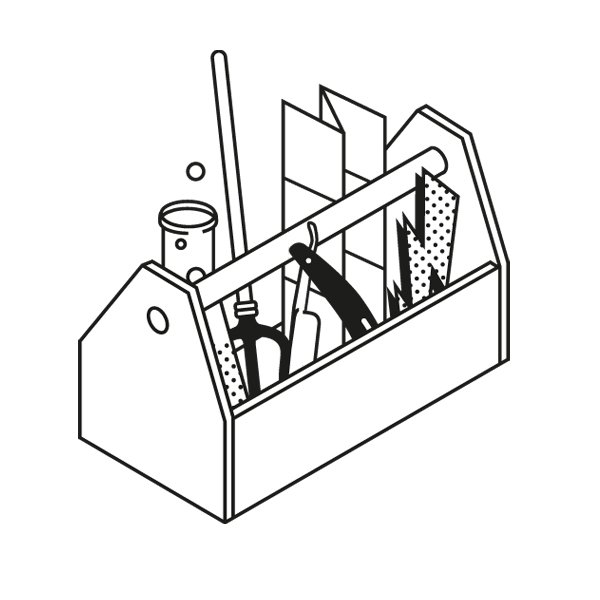In life and business, few skills hold as much transformative power as the ability to make sound decisions. Yet, strangely, no one ever formally teaches us how to do it. We’re expected to navigate the most pivotal moments of our lives relying on instinct, experience, and often, pure luck.
I learned this firsthand when I was thrust into the world of intelligence work at the age of 24. Standing in a windowless room filled with fast-flowing information—some signaling one course of action, others suggesting the opposite—I was asked to make decisions that could cost lives and make global headlines. My heart pounded. There was no manual, no seasoned expert by my side. I had to figure it out myself.
What I discovered is that decision-making isn’t a single skill, but a combination of tools, behaviors, frameworks, and mental models. Mastering these allows you to see reality more clearly and reduce costly mistakes.
Decision-Making Is Not About Being Lucky
Good decision-makers don’t simply stumble into the right choice more often than others. What sets them apart is their ability to position themselves wisely, understand the broader context, and approach problems with deliberate thought. A genius in poor circumstances can appear foolish, while an ordinary person in the right context can look brilliant.
This is where mental models come into play.
Mental Models: The Building Blocks of Smart Decisions
A mental model is essentially a simplified representation of how something works. We all use them, often without realizing it. For example:
- Velocity reminds us that both speed and direction matter.
- Reciprocity shows how giving first can foster cooperation.
- Relativity helps us recognize that shifting perspectives can uncover hidden truths.
The more diverse and refined your collection of mental models, the more effective your thinking becomes. They help you filter noise from signal, identify crucial information, and avoid blind spots.
Jeff Bezos once remarked, “The older I get, the more I realize how many kinds of smart there are.” The inverse is also true: there are many ways to be foolish.
Learning How to Think: Mentorship, Books, and Experience
Recognizing my own shortcomings, I sought mentors in my organization, bombarded them with questions, pursued an MBA, and read voraciously. The internet became my classroom, giving me access to some of the best thinkers in the world. With time, I built my own mental toolbox.
And when you work for an intelligence agency, you’d be surprised how many world-class experts are willing to help if it might save lives.
Why Even Smart People Make Terrible Decisions
History is full of catastrophic decisions made by otherwise brilliant people:
- Napoleon and Hitler’s disastrous invasions of Russia.
- NASA ignoring the O-ring warnings that led to the Challenger explosion.
- The Bay of Pigs fiasco under JFK’s leadership.
- The Daimler-Chrysler merger that turned into a debacle.
What went wrong? These failures weren’t due to a lack of intelligence but often stemmed from narrow thinking, poor frameworks, and overconfidence. They serve as cautionary tales that raw intellect alone doesn’t guarantee wise choices.
The Power of Multidisciplinary Thinking
In today’s specialized world, we often compartmentalize knowledge. But real wisdom comes from blending disciplines—borrowing principles from physics, philosophy, biology, and even poetry—to better understand reality.
For example, consider the Manhattan Project and the power of self-sustaining reactions. While that knowledge created the atomic bomb, the underlying concept of compounding effects applies to personal habits, business growth, and relationships. Understanding how seemingly small actions can trigger exponential results can profoundly impact how we approach everyday decisions.
Charlie Munger, Warren Buffett’s partner, epitomizes this multidisciplinary approach. When their Savings & Loan business was threatened in the 1980s, they quickly recognized the inevitable collapse and acted swiftly to limit damage—while others hesitated and suffered. Their decision seemed obvious in hindsight, but at the time, it was bold and counterintuitive.
Common Thinking Frameworks to Sharpen Your Judgment
Several thinking frameworks can significantly elevate the quality of your decisions:
- Inversion: Approach problems by considering what you want to avoid.
- Second-Order Thinking: Always ask, “And then what?” to anticipate future consequences.
- The Map Is Not the Territory: Remember that models and maps are simplifications; they are useful but not reality itself.
These frameworks help you break free from habitual thinking and see problems from fresh, often more accurate perspectives.
Avoiding Stupidity Is Easier Than Seeking Brilliance
Often, it’s not brilliance that leads to better decisions, but the avoidance of preventable mistakes. Nikola Tesla, for instance, despite his genius, suffered from poor interpersonal skills, which cost him collaborations, recognition, and immense wealth. The lesson? Technical excellence can’t compensate for glaring blind spots in other areas.
Similarly, General George Patton once found his troops stalled because they were overly reliant on maps. Patton, having physically crossed the shallow river, demonstrated the importance of verifying information rather than blindly trusting secondhand data.
The Role of Environment and Process
The environment in which decisions are made also matters. Distractions, biases, and groupthink can all degrade judgment. As one study pointed out, even excellent analysis can yield poor outcomes if the decision-making process itself is flawed.
Developing structured processes—like maintaining a decision journal, using decision matrices, and reflecting on past choices—can offer invaluable feedback loops, gradually refining your judgment over time.
Final Thoughts: Decision-Making Is a Lifelong Practice
Learning to make consistently good decisions is a lifelong pursuit. It requires curiosity, humility, and a willingness to learn from diverse sources. Whether you’re a CEO, a government agent, or simply navigating life’s personal challenges, mastering decision-making can help you sidestep unnecessary suffering and seize meaningful opportunities.
The world doesn’t reward you for making lucky guesses—it rewards you for thinking clearly, acting deliberately, and continually refining your ability to see things as they are.





